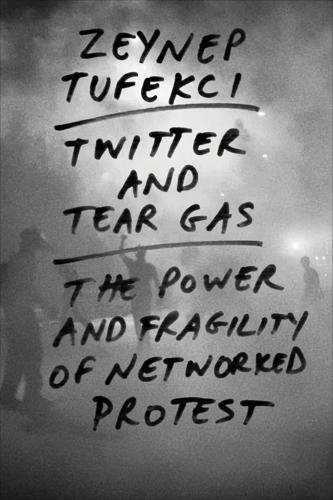
Twitter and Tear Gas: The Power and Fragility of Networked Protest
by
Zeynep Tufekci
Published 14 May 2017
One can appreciate the impulse to ask that humans shoulder responsibility for their choices, but history shows that technology is not just a neutral tool that equally empowers every potential use, outcome, or person. The historian Melvin Kranzberg perhaps stated this best with his first law of technology: “Technology is neither good nor bad; nor is it neutral” (my italics).16 Technology alters the landscape in which human social interaction takes place, shifts the power and the leverage between actors, and has many other ancillary effects. It is certainly not the only factor in any one situation, but ignoring it as a factor or assuming that a technology could be used to equally facilitate all outcomes obscures our understanding.
…
There are many parts of the world where there was no electricity just a decade ago, and now where even children have cellphones—and there still may not be electricity, at least not regularly.7 One key lesson from the past is that our familiarity with a new and rapidly spreading technologies is often superficial, and the full ramifications of these technologies are far from worked out. Another lesson is that what appears to empower one group can also empower its adversaries, and introduce novel twists to many dynamics. Historian Melvin Kranzberg’s famous dictum holds true: “Technology is neither good nor bad; nor is it neutral.”8 Neither are technology’s effects static; everything evolves as people invent, innovate, and appropriate technologies for their purposes. This dynamism does not mean that technology provides a level playing field, where each side is equally empowered and equally able to appropriate technologies for its purposes.
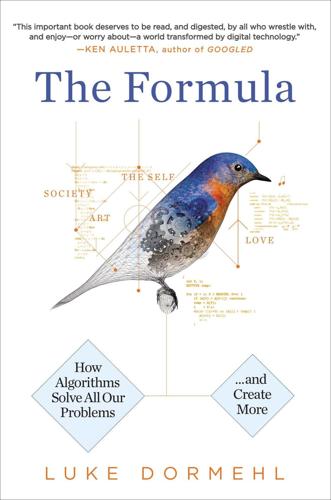
The Formula: How Algorithms Solve All Our Problems-And Create More
by
Luke Dormehl
Published 4 Nov 2014
What the speed limit algorithm experiment mentioned earlier in this chapter shows more than anything is the degree to which assumptions are built into the code that computer programmers write, even when those problems being solved might be relatively mechanical in nature. As technology historian Melvin Kranzberg’s first law of technology states: “Technology is neither good nor bad—nor is it neutral.” Implicit or explicit biases might be the work of one or two human programmers, or else come down to technological difficulties. For example, algorithms used in facial recognition technology have in the past shown higher identification rates for men than for women, and for individuals of non-white origin than for whites.
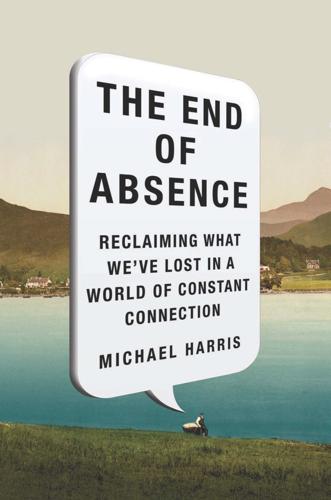
The End of Absence: Reclaiming What We've Lost in a World of Constant Connection
by
Michael Harris
Published 6 Aug 2014
PART 1 * * * Gathering We think we have discovered a grotto that is stored with bewildering treasure; we come back to the light of day, and the gems we have brought are false—mere pieces of glass—and yet does the treasure shine on, unceasingly, in the darkness. —Maurice Maeterlinck CHAPTER 1 This Kills That Technology is neither good nor bad, nor is it neutral. —Melvin Kranzberg SOON enough, nobody will remember life before the Internet. What does this unavoidable fact mean? For those billions who come next, of course, it won’t mean anything very obvious. Our online technologies, taken as a whole, will have become a kind of foundational myth—a story people are barely conscious of, something natural and, therefore, unnoticed.
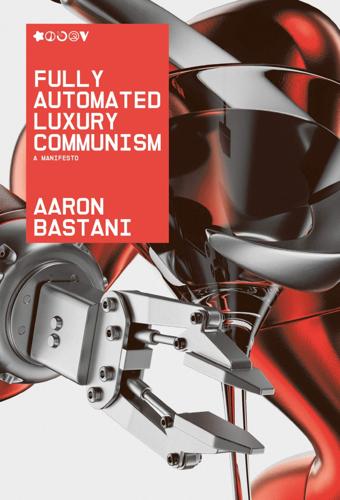
Fully Automated Luxury Communism
by
Aaron Bastani
Published 10 Jun 2019
But the measure of success can’t be the volume of transactions through the price system – to do so would be using the definition of progress that belongs to a world already passing away. 12 FALC: A New Beginning Socialism is not evolution’s last and perfect product or the end of history, but in a sense only the beginning. Isaac Deutscher The relationship between technology and politics is a complicated one. Melvin Kranzberg put it best in his ‘Six Laws of Technology’ when he outlined the first of those laws: ‘Technology is neither good nor bad; nor is it neutral.’ In other words, how technology is created and used, and to whose advantage, depends on the political, ethical and social contexts from which it emerges. To paraphrase Marx, technology makes history – but not under conditions of its own making. Perhaps that’s what Kranzberg meant with his sixth law, ‘All history is relevant, but the history of technology is the most relevant.’

The Great Wave: The Era of Radical Disruption and the Rise of the Outsider
by
Michiko Kakutani
Published 20 Feb 2024
In this ecosystem, more and more energy is moving from the margins toward the center, from the grassroots upward, from start-ups, protesters, and outsiders—a kind of countermovement to Big Tech’s monopolistic consolidation of power and the efforts of authoritarian leaders to centralize power in their own hands. The historian Melvin Kranzberg once observed that “technology is neither good nor bad, nor is it neutral,” and the same might well be said of the growing influence of outsiders. Some have demonstrated their courage, resolve, and imaginative leadership, like Ukraine’s president Volodymyr Zelensky, a former actor and comedian (elected by a landslide in 2019) who rallied the free world around his country after Vladimir Putin launched an unprovoked invasion in early 2022.
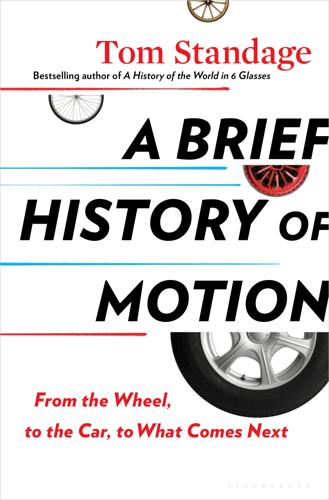
A Brief History of Motion: From the Wheel, to the Car, to What Comes Next
by
Tom Standage
Published 16 Aug 2021
Others, particularly in China, are working with city authorities to make urban environments more AV friendly, for example by installing dedicated infrastructure to support AVs, restricting access for other vehicles in some districts, and limiting AV firms’ legal liability in the event of accidents. Should they eventually materialize, robotaxis seem likely to be part of the answer to what comes after the automotive age—but only part of it. So what does the postcar world look like? 12 The Road Ahead Technology is neither good nor bad; nor is it neutral. —MELVIN KRANZBERG, AMERICAN HISTORIAN (1917–95) THE LONG HISTORY OF THE END OF THE CAR People have been predicting the end of the automotive era for decades. In 1958, a time that is now remembered as the height of American car culture, John Keats, an American satirist, published The Insolent Chariots.
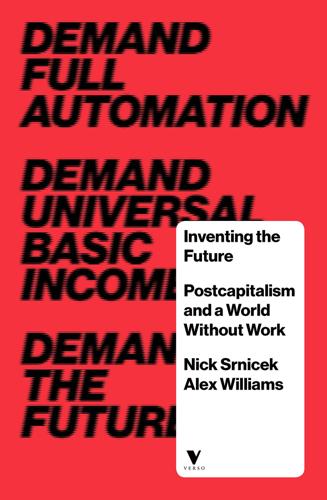
Inventing the Future: Postcapitalism and a World Without Work
by
Nick Srnicek
and
Alex Williams
Published 1 Oct 2015
The ambitious plan to conquer the capitalist means of production ran aground on the reality that power relationships are embedded within technologies, which cannot therefore be infinitely bent towards purposes that oppose their very functioning.112 Numerical control technologies, for example, have been used to set the pace of production, forcing workers to keep up with a machine – rendering the power of management more indirect and invisible.113 In this way, machines can conceal power relations by making them appear as simple mechanical processes. Yet repurposing remains possible in spite of these limits because there is often a significant untapped reservoir of potentials lying dormant within a technology. The difficult point to understand is that, in the words of one historian, ‘Technology is neither good nor bad; nor is it neutral.’114 Any given technology is political but flexible, as it always exists in excess of the purposes for which it may have been designed.115 Rather, the design, meaning and impact of a technology are constantly shifting, altering as users transform it and as its environment changes.116 Paraphrasing Spinoza, we can say that we know not what a sociotechnical body can do.

Consider the Fork: A History of How We Cook and Eat
by
Bee Wilson
Published 14 Sep 2012
Our cooking benefits from much uncredited engineering, but there have also been gadgets that create more problems than they solve, and others that work perfectly well, but at a human cost. Historians of technology often quote Kranzberg’s First Law (formulated by Melvin Kranzberg in a seminal essay in 1986): “Technology is neither good nor bad; nor is it neutral.” This is certainly true in the kitchen. Tools are not neutral objects. They change with changing social context. A mortar and pestle was a different thing for the Roman slave forced to pound up highly amalgamated mixtures for hours on end for his master’s enjoyment than it is for me: a pleasing object with which I make pesto for fun, on a whim.
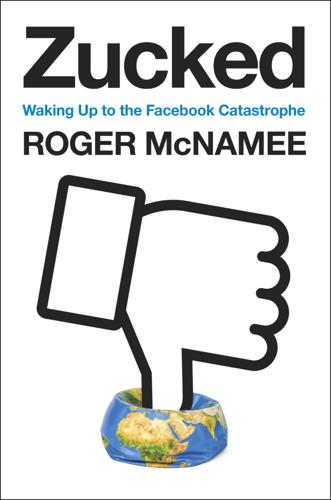
Zucked: Waking Up to the Facebook Catastrophe
by
Roger McNamee
Published 1 Jan 2019
Classification: LCC HM743.F33 (ebook) | LCC HM743.F33 M347 2019 (print) | DDC 302.30285—dc23 LC record available at https://lccn.loc.gov/2018048578 While the author has made every effort to provide accurate telephone numbers, internet addresses, and other contact information at the time of publication, neither the publisher nor the author assumes any responsibility for errors or for changes that occur after publication. Further, the publisher does not have any control over and does not assume any responsibility for author or third-party websites or their content. Version_1 To Ann, who inspires me every day Technology is neither good nor bad; nor is it neutral. —Melvin Kranzberg’s First Law of Technology We cannot solve our problems with the same thinking we used when we created them. —Albert Einstein Ultimately, what the tech industry really cares about is ushering in the future, but it conflates technological progress with societal progress.
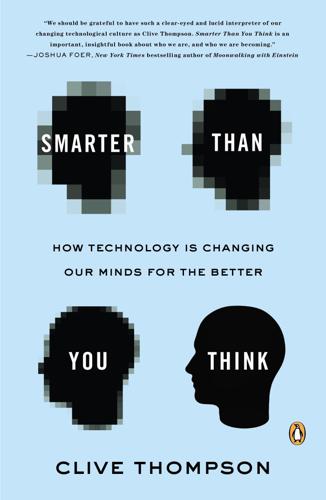
Smarter Than You Think: How Technology Is Changing Our Minds for the Better
by
Clive Thompson
Published 11 Sep 2013
Today, of course, everyday use has so domesticated the technology that nostalgics now regard the telephone as an emotionally vibrant form of communication that the Internet is tragically killing off. This isn’t to say that technology changes nothing for the worse or that these criticisms weren’t partly correct. “Technology is neither good nor bad; nor is it neutral,” as the technology thinker Melvin Kranzberg pointed out. It’s why each tool needs to be carefully scrutinized on its own merits. The stuff we find merely annoying about a new technology in the short run is often off base, and we can miss the subtler ways it alters patterns of thought in the long run.

Exponential: How Accelerating Technology Is Leaving Us Behind and What to Do About It
by
Azeem Azhar
Published 6 Sep 2021
As the historian Melvin Kranzberg put it: ‘The point is that the same technology can answer questions differently, depending on the context into which it is introduced and the problem it is designed to solve.’ But acknowledging that the direction of technology is not preordained doesn’t amount to saying that technology isn’t transformative. Elsewhere, Kranzberg writes that technology ‘is neither good, nor bad, nor is it neutral’.12 Like it or not, technology brings change. And so the second stage in our shift in mindset involves acceptance: recognising that while we can shape it, technology will nonetheless bring rapid, often unexpected dislocations. In the face of these changes, we must avoid the temptation to prevent experimentation, or choke the creative vigour of the market.
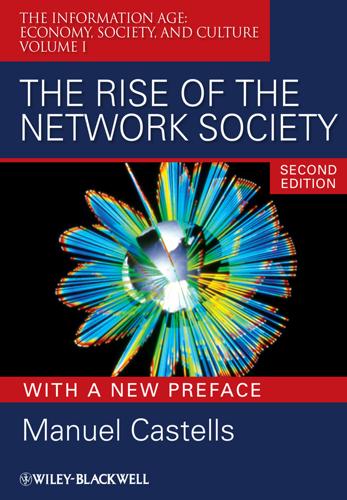
The Rise of the Network Society
by
Manuel Castells
Published 31 Aug 1996
Comprehensiveness, complexity, and networking are its decisive qualities. Thus, the social dimension of the information technology revolution seems bound to follow the law on the relationship between technology and society proposed some time ago by Melvin Kranzberg: “Kranzberg’s First Law reads as follows: Technology is neither good nor bad, nor is it neutral.”104 It is indeed a force, probably more than ever under the current technological paradigm that penetrates the core of life and mind.105 But its actual deployment in the realm of conscious social action, and the complex matrix of interaction between the technological forces unleashed by our species, and the species itself, are matters of inquiry rather than of fate.